Each year the US Department of Transportation honors the most outstanding student from each of the University Transportation Centers for their achievements and promise for future contributions to the transportation field. Students of the year are selected based on their accomplishments in such areas as technical merit and research, academic performance, professionalism, and leadership.
2023 Student of the Year – Robert Binder
(NCST USDOT Grant No.69A3551747114)

Robert is a Ph.D. candidate for Urban Planning at the University of Southern California. His ongoing dissertation work, “Brushing Shoulders: In-Transit Social Interactions and Intersecting Identities in Los Angeles & Detroit," investigates how public transit can provide a mechanism for social mixing. In this research, Robert uses a combination of quantitative and qualitative methods, mixing spatial analysis with ethnographic techniques like participant observation and storytelling. For example, this involves riding the bus in Detroit, jotting down the ridership experience, interactions with other riders, and personal insights. This unique approach to transportation studies, Robert hopes, will translate into research that can connect with readers and the public in a way that traditional academia cannot.
In addition to being named NCST's 2023 student of the year, Robert has also been recognized for a number of other awards, including a scholarship from the American Public Transportation Foundation in 2023, a scholarship from the Railway Association of Southern California in 2023, and a fellowship with the Dwight David Eisenhower Transportation program for 2021-22 and 2022-23.
2022 Student of the Year – Meg Slattery
(NCST USDOT Grant No.69A3551747114)
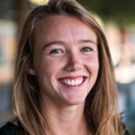
Meg is a Ph.D. candidate in the Energy Graduate Group at the University of California, Davis. Meg’s research is related to Industrial Ecology— the flows of energy and materials that are associated with different activities, products, or systems. For her dissertation, Meg is focusing on battery reuse and recycling, and lithium extraction in the Salton Sea. Her research endeavors have placed her in a unique position, allowing her to directly inform policy through supporting the California EPA's Lithium-ion Car Battery Recycling Advisory Group by providing background information, facilitating stakeholder discussions, and developing a final report that provided policy recommendations to the state legislature.
In addition to pursuing her Ph.D., Meg serves as the Chair of the Natural Resources Commission for the City of Davis and has been invited to invited to give presentations about the EV battery supply chain and recycling for the National Counsel of Environmental Legislators (NCEL), Electric Power Research Institute (EPRI), and UC Davis Energy and Efficiency Institute.
2021 Student of the Year – Sarah Grajdura
(NCST USDOT Grant No.69A3551747114)

Sarah is a Ph.D. candidate at University of California Davis studying Civil & Environmental Engineering. Sarah’s research focuses on wildfire evacuation modeling and social equity in natural disasters. Her dissertation specifically centers around the evacuation of California residents during the Camp Fire, which devastated the town of Paradise and other Butte County communities three years ago. Her research will help to provide greater insight on what occurred in the fire, informing how evacuation planning efforts can be improved in the future. Sarah’s research efforts also include the development of the California Integrated Transportation Health Impact Model (ITHIM) for the California Air Resources Board and the investigation of policies related to the export of used vehicles to lower income countries for the World Bank.
Beyond her research efforts, Sarah co-founded the Transportation Equity and Mobility Justice Working Group UC Davis in 2019 and contributed to planning a University of California-wide class on transportation equity in 2020.
2020 Student of the Year – Amy Lee
(NCST USDOT Grant No.69A3551747114)
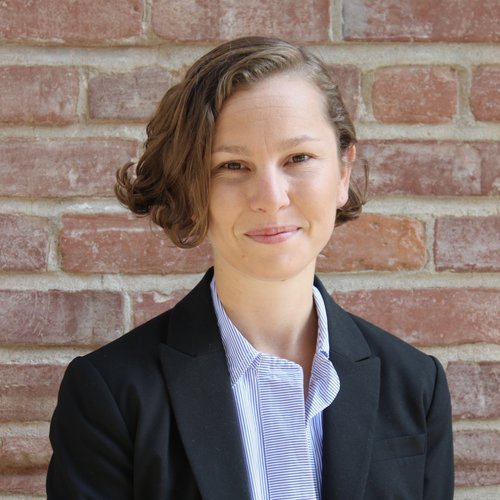
Amy is a Ph.D. candidate in the Transportation Technology & Policy Graduate Group at the University of California, Davis. Her research focuses on the relationships between transportation and land use, particularly the impacts of policy and politics on urban planning, transportation planning, and ultimately travel behavior and climate change. Her recent work includes the design and implementation of campus-wide travel surveys and the study of transportation performance metrics and induced travel. Amy has been an instructor and teaching assistant for the upper-division undergraduate urban planning course at UC Davis and has lectured in courses in environmental analysis and transportation policy.
Prior to pursuing a Ph.D. Amy was a research analyst at the metropolitan planning organization for the Sacramento region, SACOG, where she worked on the Climate & Energy team. While at SACOG Amy led the agency’s efforts to analyze and implement California’s Senate Bill 743 (swapping vehicle congestion with vehicle miles traveled in the state’s environmental law) and contributed to regional plans for electric vehicle infrastructure, climate change adaptation, and rural economic development.
2019 Student of the Year – Calvin Clark
(NCST USDOT Grant No.69A3551747114)
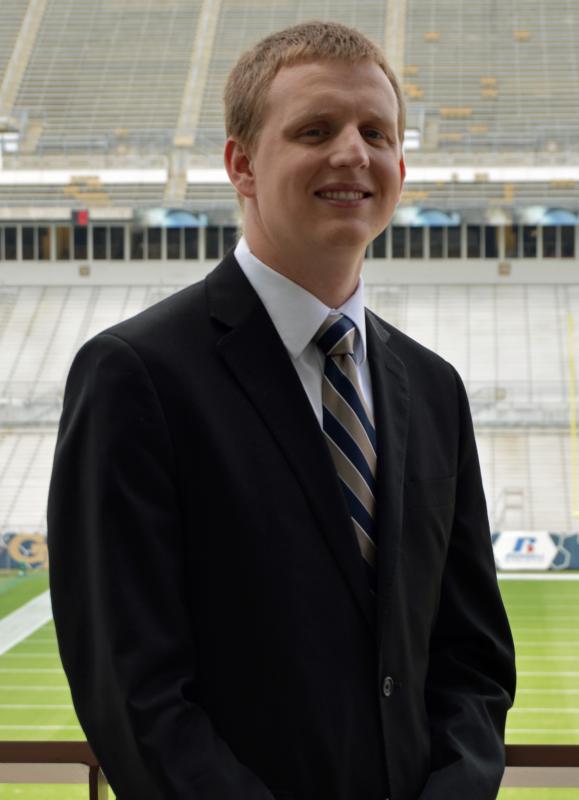
Calvin's current research aims to provide guidance for predicting the effectiveness of bicycle facilities among current and potential cyclists. Calvin has built on prior work done at Georgia Tech by exploring the role of attitudes of residents toward bicycle infrastructure in addition to their use of it, enabling a better understanding of how bicycle facilities can be designed to positively impact whole communities. As a result of his work, Calvin is in the process of completing two papers before his graduation in December 2019. Additionally, he was recently published in the Transportation Research Record.
In addition to working toward his PhD in Transportation Systems Engineering, Calvin is currently teaching as well. He has served as a teaching assistant for multiple undergraduate transportation courses at Georgia Tech, earning outstanding reviews from students.
2018 Student of the Year – Farzad Alemi
(NCST USDOT Grant No.69A3551747114)
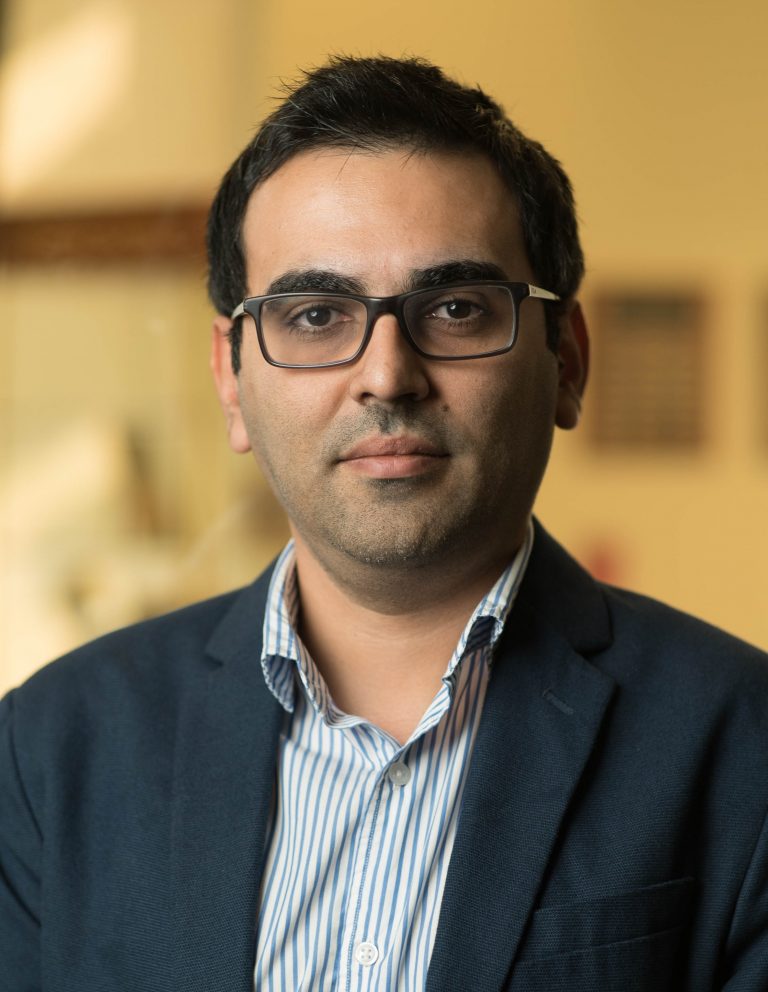 Prior to coming to UC Davis, Farzad received his MS in Urban and Regional Planning from the University of Greenwich and his BS in Civil and Environmental Engineering from the Iran University of Science and Technology. Farzad completed his PhD in Transportation Technology and Policy here at UC Davis and was hired as a postdoctoral researcher at the Institute of Transportation Studies of UC Davis. His research interests include travel behavior, travel demand modeling, travel survey methods, emerging transportation services, autonomous vehicles, travel demand management strategies, sustainability and policy analysis. He is currently working on several projects related to understanding the impacts of new shared mobility services and vehicle automation on travel demand and vehicle ownership. Farzad is active in advising other students, contributes to the organization of the program activities, and is launching new research projects involving big data analysis and the design of stated preference (SP) surveys in order to better understand changes in future mobility patterns.
Prior to coming to UC Davis, Farzad received his MS in Urban and Regional Planning from the University of Greenwich and his BS in Civil and Environmental Engineering from the Iran University of Science and Technology. Farzad completed his PhD in Transportation Technology and Policy here at UC Davis and was hired as a postdoctoral researcher at the Institute of Transportation Studies of UC Davis. His research interests include travel behavior, travel demand modeling, travel survey methods, emerging transportation services, autonomous vehicles, travel demand management strategies, sustainability and policy analysis. He is currently working on several projects related to understanding the impacts of new shared mobility services and vehicle automation on travel demand and vehicle ownership. Farzad is active in advising other students, contributes to the organization of the program activities, and is launching new research projects involving big data analysis and the design of stated preference (SP) surveys in order to better understand changes in future mobility patterns.
2017 Student of the Year – Joshua Morales
(NCST USDOT Grant No. 69A3551747114)
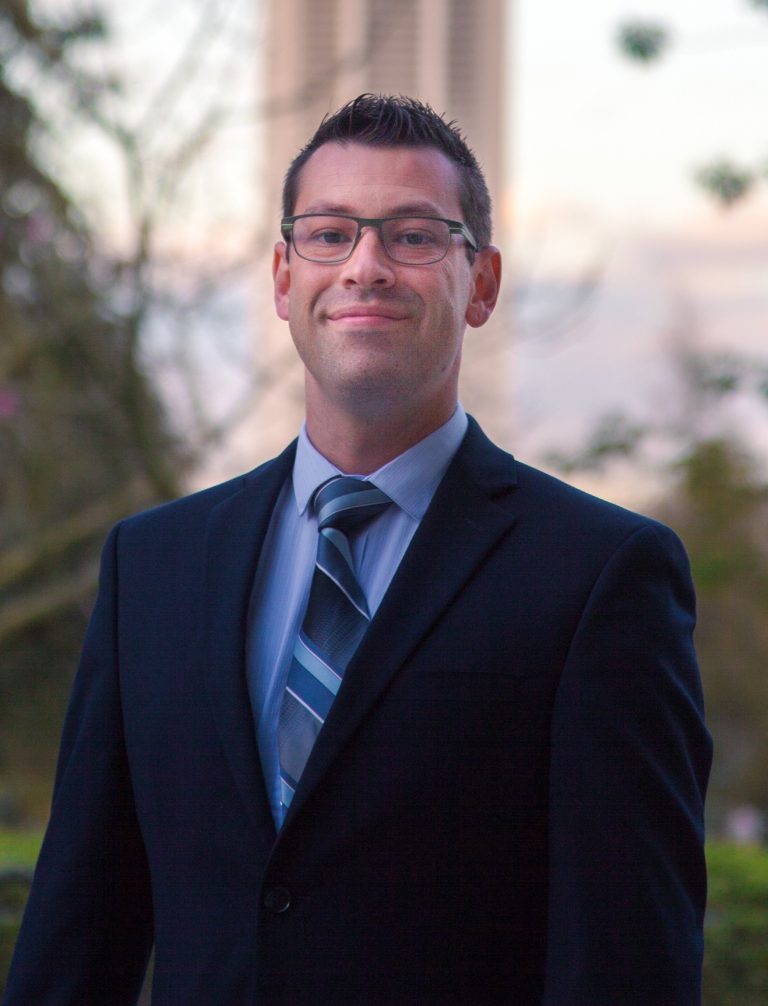 Joshua received a B.S. with High Honors in Electrical Engineering from the University of California, Riverside. He is currently pursuing a Ph.D. from the Department of Electrical and Computer Engineering at the University of California, Riverside and is a member of the Autonomous Systems Perception, Intelligence, and Navigation (ASPIN) Laboratory. His research interests include estimation, autonomous vehicles, intelligent transportation systems, and navigation systems.
Joshua received a B.S. with High Honors in Electrical Engineering from the University of California, Riverside. He is currently pursuing a Ph.D. from the Department of Electrical and Computer Engineering at the University of California, Riverside and is a member of the Autonomous Systems Perception, Intelligence, and Navigation (ASPIN) Laboratory. His research interests include estimation, autonomous vehicles, intelligent transportation systems, and navigation systems.
2017 Student of the Year – Hanjiro Ambrose
(NCST USDOT Grant No. DTRT13-G-UTC29)
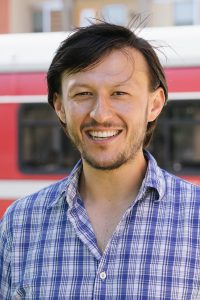 Hanjiro Ambrose is a fourth year, PhD Candidate in the Department of Civil and Environmental Engineering at the University of California Davis, where he also received an MS in Transportation Technology and Policy. He is the author of a number of quality research publications, and is proud to support the field through work with the Transportation Research Board and International Society of Industrial Ecology. After graduation, Hanjiro hopes to find a faculty position where he can help junior scientists and engineers connect their research and passions with opportunities for doing social and environmental good.
Hanjiro Ambrose is a fourth year, PhD Candidate in the Department of Civil and Environmental Engineering at the University of California Davis, where he also received an MS in Transportation Technology and Policy. He is the author of a number of quality research publications, and is proud to support the field through work with the Transportation Research Board and International Society of Industrial Ecology. After graduation, Hanjiro hopes to find a faculty position where he can help junior scientists and engineers connect their research and passions with opportunities for doing social and environmental good.
2016 Student of the Year – Matthew Palm
(NCST USDOT Grant No. DTRT13-G-UTC29)
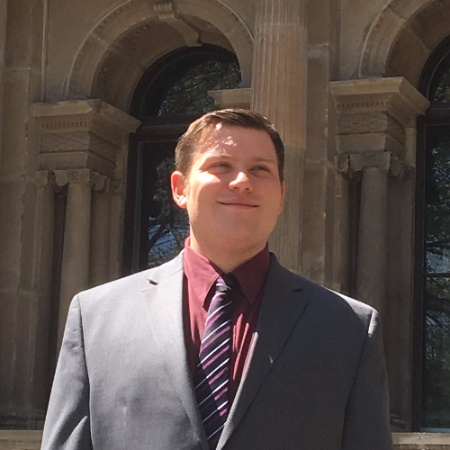 Matthew Palm received his Ph.D. in Geography from UC Davis in 2016. His research focuses on environmental justice and developing smart housing and transportation policies for working class communities, including how to integrate state, regional and federal housing programs with sustainable transportation planning goals. Data produced for his research is being utilized by multiple state agencies in California to evaluate the state’s affordable housing programs. He also conducted research evaluating how voters respond to ‘ballot box transportation planning.’ At UC Santa Cruz, Matt earned a B.A. in History while organizing with The Network (now Queer Student Union) and Student Union Assembly. Afterward, he earned a Master’s in Public Policy at Oregon State University.
Matthew Palm received his Ph.D. in Geography from UC Davis in 2016. His research focuses on environmental justice and developing smart housing and transportation policies for working class communities, including how to integrate state, regional and federal housing programs with sustainable transportation planning goals. Data produced for his research is being utilized by multiple state agencies in California to evaluate the state’s affordable housing programs. He also conducted research evaluating how voters respond to ‘ballot box transportation planning.’ At UC Santa Cruz, Matt earned a B.A. in History while organizing with The Network (now Queer Student Union) and Student Union Assembly. Afterward, he earned a Master’s in Public Policy at Oregon State University.
2015 Student of the Year – Gabriel Lade
(NCST USDOT Grant No. DTRT13-G-UTC29)
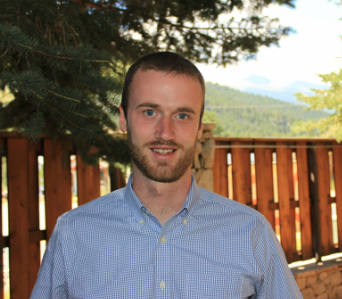
Gabriel Lade received his Ph.D. in Agricultural and Resource Economics from UC Davis in 2015. He also received Honorable Mention for the Department of Agricultural and Resource Economics Best Ph.D. Dissertation. He has a B.A. in Economics and International Affairs from the George Washington University and an M.A. in Economics from Rutgers University.
Gabriel currently works as a Research Economist for the National Bureau of Economics Research and an Assistant Professor at Iowa State University. He has received numerous grants and fellowships; most recently, the E2e Project, Energy Efficiency Research Seed Grant and the National Bureau of Economic Research Economics of Energy Markets Grant. His research interests lie at the intersection of environmental, energy, and agricultural economics.
2014 Student of the Year – Eric Cahill
(NCST USDOT Grant No. DTRT13-G-UTC29)
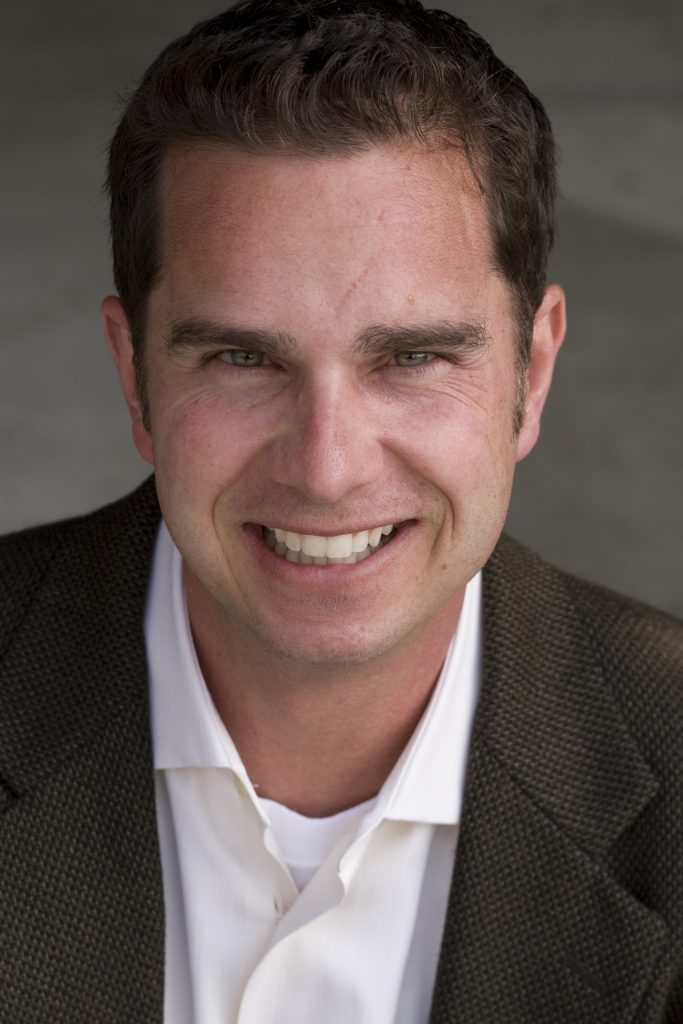
Eric Cahill enrolled in the Transportation Technology and Policy program at UC Davis after 18 years in industry. Most recently, he founded Adaptiv, an independent consultancy devoted to delivering clean vehicle technology, product strategy, and policy insight by synthesizing specialized market research into actionable intelligence for decision makers. He has a B.S. in Aerospace Engineering from USC and M.S. degrees in Technology and Policy and in Engineering and Management from MIT.
Eric’s dissertation provided the first in-depth look at the role of car dealers in bringing zero-emission vehicles (ZEVs) to the market. His ground-breaking research, funded by the California Energy Commission, involved over 100 hours of in-depth interviews with dealers and other experts. In October 2014, he testified before the California Air Resources Board on the role of dealers in meeting the state’s ZEV mandate. His work is had a profound impact on the debate about the role of dealers in accelerating the commercialization of electric vehicles.
